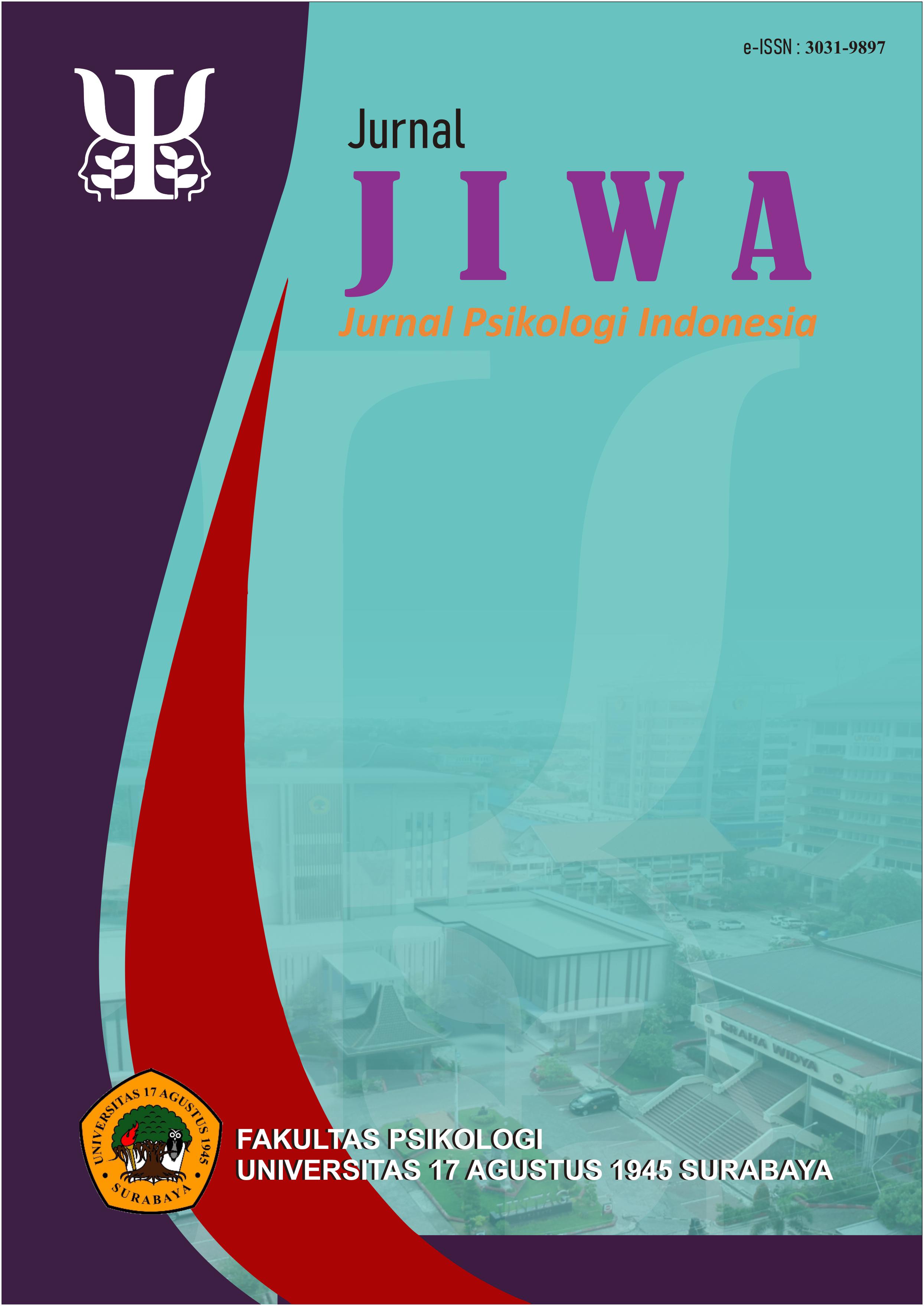Psychological Well-being pada Remaja : Bagaimana Peranan Kecenderungan Kecanduan Media Sosial?
DOI:
https://doi.org/10.30996/jiwa.v2i1.10411Keywords:
Psychological Well-being, remaja, sosial mediaAbstract
Adolescence is an important stage in a person's life that includes emotional development, physical development, as well as mental and social development. Someone who has difficulty controlling their use of social media. This can lead to various problems, including psychological problems. For adolescents, the high level of use of social networks will have negative consequences. This study aims to determine whether there is a relationship between social media addiction and psychological well-being in late adolescence. This research is a correlational research. The subjects in this study were 144 late adolescents. Hypothesis testing was carried out using the product moment test technique. The results of this study indicate a positive relationship between the tendency of social media addiction to psychological well-being. It can be said that social media can improve psychological well-being of adolescents. It is also not said that adolescents experience a tendency to social media addiction because they do not use social media as a top priority, and use more than 5 hours a day.
Keywords: 1) Social Media; 2) Psychologicall Well-being; 3) Teenager.
Masa remaja merupakan tahapan penting pada kehidupan seorang yang mencakup perkembangan emosional, perkembangan fisik, dan juga mental, serta sosial. Seseorang yang mengalami kesulitan untuk mengendalikan penggunaan media sosial. Hal ini dapat menyebabkan berbagai masalah, termasuk masalah psikologis. Bagi remaja, tingginya tingkat penggunaan jejaring sosial akan memberikan akibat akibat negative. Penelitian ini mempunyai tujuan untuk mengetahui apakah ada hubungan antara kecanduan kecanduan media sosial terhadap psychological well-being pada usia remaja akhir. Penelitian ini adalah penelitian korelasional. Subjek dalam penelitian ini sebanyak 144 remaja akhir. Pengujian hipotesis yang dilakukan menggunakan teknik uji product moment. Hasil penelitian ini menunjukkan adanya hubungan yang positif antara kecenderungan kecanduan media sosial terhadap psychological well-being. Hal ini dapat dikatakan media sosial dapat meningkatkan psychological well-being remaja. Hal ini juga tidak dikatakan remaja mengalami kecenderungan kecanduan media sosial karena tidak menggunakan media sosial sebagai prioritas utama, dan menggunakan lebih dari 5 jam dalam sehari.
Kata kunci: 1) Media Sosial; 2) Psychological well-being; 3) Remaja.
Downloads
References
Huppert, F.A (2009). Psychological well-being : vidence regarding its causes and consequences. Applied Psychology: Health and Well-Being, 1 (2), 137-164.
Hurlock, E. B. (1980). Psikologi Perkembangan: Suatu Pendekatan Sepanjang Rentang Kehidupan. Gramedia Pustaka Utama.
Manning, J. (2016). Definition and Classes of Social Media. In Encyclopedia of Social Media and Politics (pp. 1158–1162). SAGE Publications Inc.
Mirowsky. & Ross. (1999). Well‐being across the life course. Dalam Horwitz & Scheid (Eds.), A handbook for the study of mental health : Social context, theories, and system. Cambridge: Cambridge University Press.
Robinson, M. D. (2014). Retrospective reports. Dalam A. Michalos (Eds.), Encyclopedia of quality of life and well-being research (pp. i-j). Dordecht, The Netherlands : Springer.
Ryff, C. D dan Keyes C.L.M. 1995. The Structure Of Psychological Well Being Reveisted. Joulnal Of Personaliity And Social Psychology. Vol. 73







